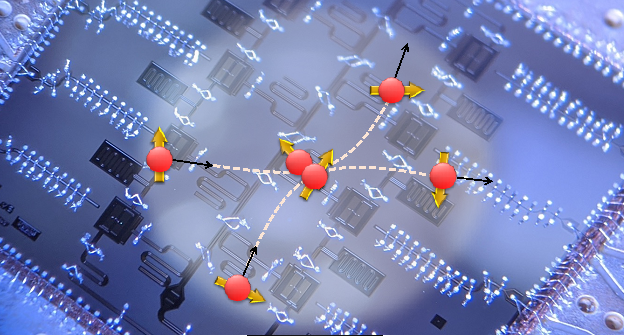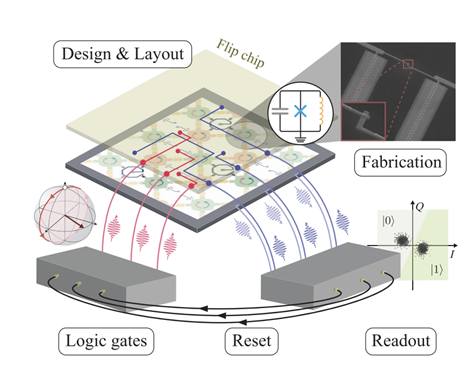2012 X-Stack FOA Frequently Asked Questions
2012 X-Stack: Programming Challenges, Runtime Systems, and Tools
Funding Opportunity Announcements (FOA) DE-FOA-0000619 and Program Announcement LAB12-619
Q1: What is the expected size of awards? The FOA said that each institution should range from $500K-$1.5M.
A1: The FOA, under item E. of PART II - AWARD INFORMATION, states: "Award sizes for each collaborating institution are anticipated to range from $500,000 up to $1,500,000 per year." This has been corrected to the following: "The total project size is anticipated to range from $500,000 up to $4,000,000 per year."
Q2: Does the collaboration need to be led by a lab?
A2: No, collaborations can be led by a University or Industry based PI. However, we encourage projects with Lab co-PIs, in order to keep the DOE Office of Science mission focus.
Q3: The evaluation criteria in the FOA seem designed to evaluate vertically-integrated proposals that address all aspects of the exascale software stack. Would a focused effort that targets several bullets in the FOA but not all be considered responsive to the call? If so, will the evaluation criteria should be adjusted so that it is clear that a single proposal does not have to address all of the listed challenges?
A3: Yes, a proposal may address a subset of the X-Stack, as long as it addresses multiple components of it. Yes, the evaluation criteria will be adjusted to include only relevant challenges (e.g., programmability challenges for a subset that addresses tools and run-time systems, does not apply)
Q4: How many awards overall are targeted?
A4: There isn't a target number of awards. Until we review the proposals and make selection decisions, we will not know how many awards we will make.
Q5: Can a Principal Investigator (PI) be on more than one team?
A5: Yes.
Q6: What is the DOE position on open source?
A6: The official position of DOE is that software produced in connection with an award should be open source. The office has preference for the BSD license. Occasionally the office makes exception to this rule when there is co-funding involved and the applicant applies to a patent waiver. Also, applicants may keep all existing IP that they propose to bring into a new software to be developed.
Q7: What kinds of contracts are you looking for?
A7: We do not negotiate contracts. We enter into cooperative agreements. If you are a subcontractor for a Lab, then the type of instrument used is up to the Lab and your company or University.
Q8: Do we need to respond to all components of the X-stack (i.e. runtime, compiler, debugger, OS, model checking, etc)? Or can we respond to some of the X-Stack components?
A8: You may select only a subset of the X-Stack, as long as it addresses multiple components. See also the question on the evaluation criteria.
Q9: The FOA states that the application MUST include a description of the proposed path to integration and/or interoperation with existing programming environments. The FOA also encourages solutions to transform applications from "old" to the "new" programming environment. Does a path of transformation from old to new replace the requirement of describing a path to interoperation/integration with existing environments?
A9: The proposal should describe how the transformed applications may still run even if required algorithms and/or libraries are not yet transformed or unlikely to be transformed.
Q10: The sample table (on page 18 for the University version and on page 16 for the Lab version) of the funding opportunity shows five years of funding, whereas the information under Program Funding is that expected awards are to be made for a period of three years. Is the sample table incorrect?
A10: Yes, the sample table should have shown three years instead of five.
Q11: Who owns title to any inventions conceived or reduced to practice under the program prior to the approval or granting of the patent waiver?
A11: With respect to rights to inventions arising from sponsored research and development, pursuant to the Atomic Energy Act of 1954 (42 USC 2011 et seq.) and the Federal Non-nuclear Research and Development Act of 1974 (42 USC 5908), the Department of Energy (U.S. Government) owns title to any subject inventions conceived or reduced to practice by large businesses under the program prior to the approval of the patent waiver. However, the Secretary of Energy, may waive the rights of the United States with respect to any invention or class of inventions made or which may be made by any person or class of persons in the course of or under contract of the Secretary if he determines that the interests of the United States and the general public will best be served by such waiver. Under the Bayh-Dole Act (35 USC 200, et seq.), small businesses and universities generally may elect to retain title to any subject inventions conceived or reduced to practice under the program without the need for a patent waiver.
Q12: Who owns title to any inventions conceived or reduced to practice under the program if the Request for Patent Waiver is subsequently disapproved or denied?
A12: Prior to approval of a waiver and subsequent to a disapproval/denial, for large businesses, title to any subject invention vests with the United States in accordance with the Atomic Energy Act of 1954 or the Federal Non-nuclear Research and Development Act. With respect to small business, non-profits and universities, each may elect to retain title to any subject invention pursuant to the Bayh-Dole Act.
Q13: Can the DOE include such a waiver in the final version of the FOA for this procurement?
A13: Yes, a class patent waiver or an advance patent waiver may be granted concurrently with an award for the funding opportunity announcement. The authorization for class waivers is found at 42 USC 5908(c). Class waivers may be appropriate in situations where all members of a particular class would likely qualify for an advance or identified invention waiver. Normally, class waivers are originated by the DOE, however, any person with a direct and substantial interest in a DOE program may request a class waiver by forwarding a written request therefor to the Patent Counsel.
Q14: Is there a citizenship requirement for grants? Can foreign institution apply?
A14: Any university or other institution of higher education or other non-profit or for-profit organization, non-Federal agency or entity, is eligible for a grant or cooperative agreement. An unaffiliated individual also is eligible for a grant or cooperative agreement. For more information go to: http://science.doe.gov/grants/policy.asp#rules
Q15: If a Lab is the lead institution, would it have to distribute funds to the partners, or do the collaborators get funds directly from DOE?
A15: It is preferred that each collaborating institution submit a proposal to DOE and receive, if selected, funding directly from DOE. However, it is possible for a collaborating institution to enter into a sub-contract with a national laboratory for collaboratory work and this arrangement should be clearly identified in the Lab proposal.
Q16: Will cost sharing be a consideration in making awards?
A16: Cost sharing is not a requirement for this FOA.
Q17: The FAQ says: "Under the Bayh-Dole Act (35 USC 200, et seq.), small businesses and universities generally may elect to retain title to any subject inventions conceived or reduced to practice under the program without the need for a patent waiver.". Does that mean a small business doesn't need to go through the patent waiver process for source code?
A17: Technical data that rises to the level of a subject invention can be controlled by the Bayh-Dole Act (Bayh-Dole) and if that is the case, the small business/non-profit may benefit from Bayh-Dole if they comply with the requirements of Bayh-Dole. If Bayh-Dole applies, there may not be a need to request a patent waiver but the PI should check with DOE before assuming Bayh-Dole applies.
Q18: It appears from the FOA that completing the "Research and Related Budget" form is mandatory. This is structured for what looks like a cost plus proposal. We would prefer to do a firm fixed price response. Is that not an option?
A18: This FOA will not support contracts - all awards will be grants. Please refer to the Grant rules, regulations and guidance online at http://www.science.doe.gov/grants/policy.asp#rules for information on how to complete the Research and Related Budget form. If your organization has questions or concerns with regard to applying this guidance to your organization's cost structure, please contact the Grants and Contracts Division, Office of Science, at 301-903-5212.
Q19: Are individual partner 1-2 page work statements required in addition to the 25 page work narrative?
A19: In the lead PI proposal, the 1-2 page partner summaries are in addition to the 25 page narrative. Each partner from a different institution needs to submit a separate full proposal. If the partner uses the same, or very similar, 25 pages of narrative as the lead PI that narrative must explicitly address that partners unique contributions within that 25 page narrative.
Q20: The X Stack 2012 FOA states that general letters of support should not be included. Is it permissible to include quotations from them within the project narrative?
A20: Other than page limits, there are no restrictions on how you describe your collaborations in your narrative.



